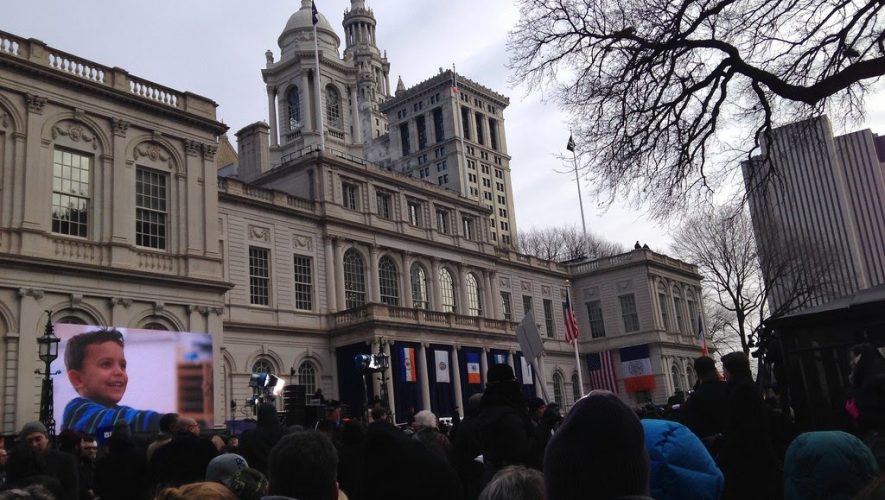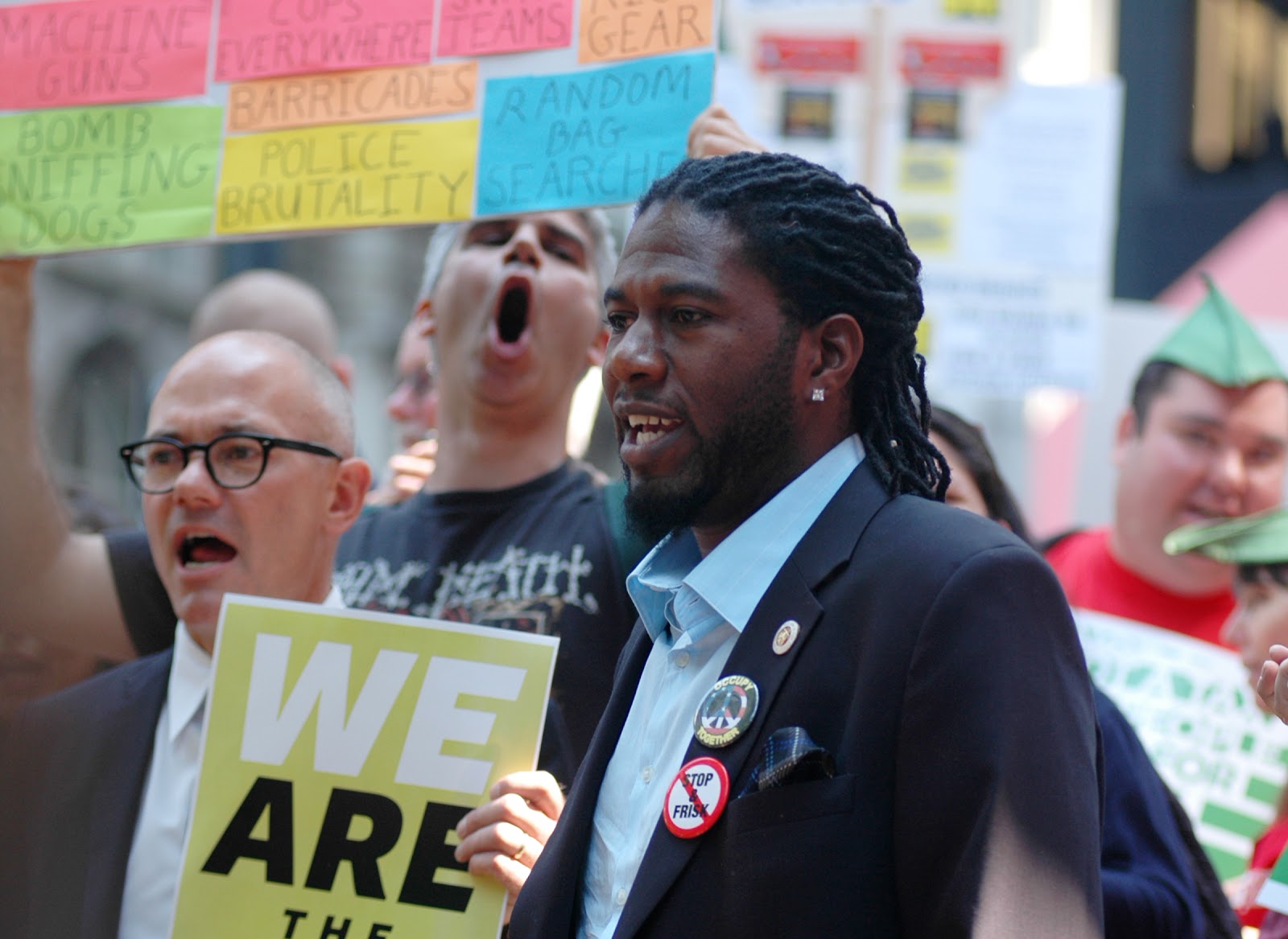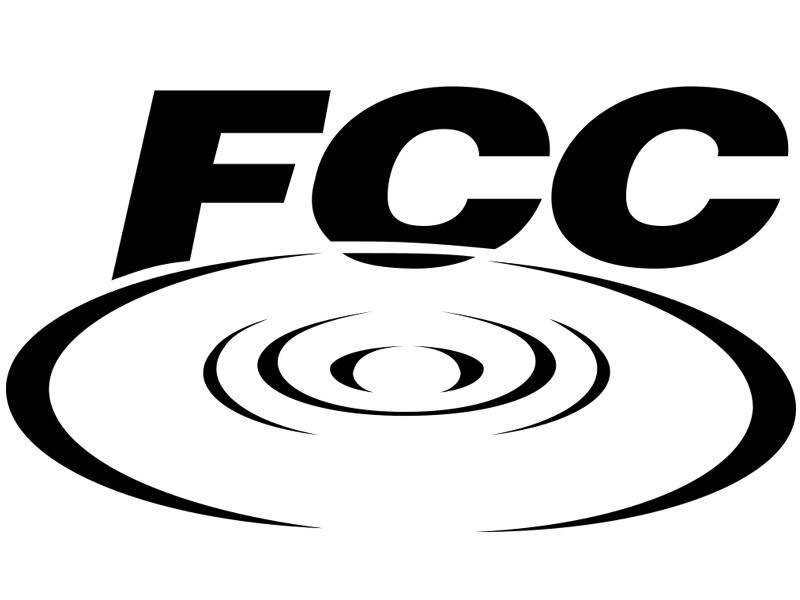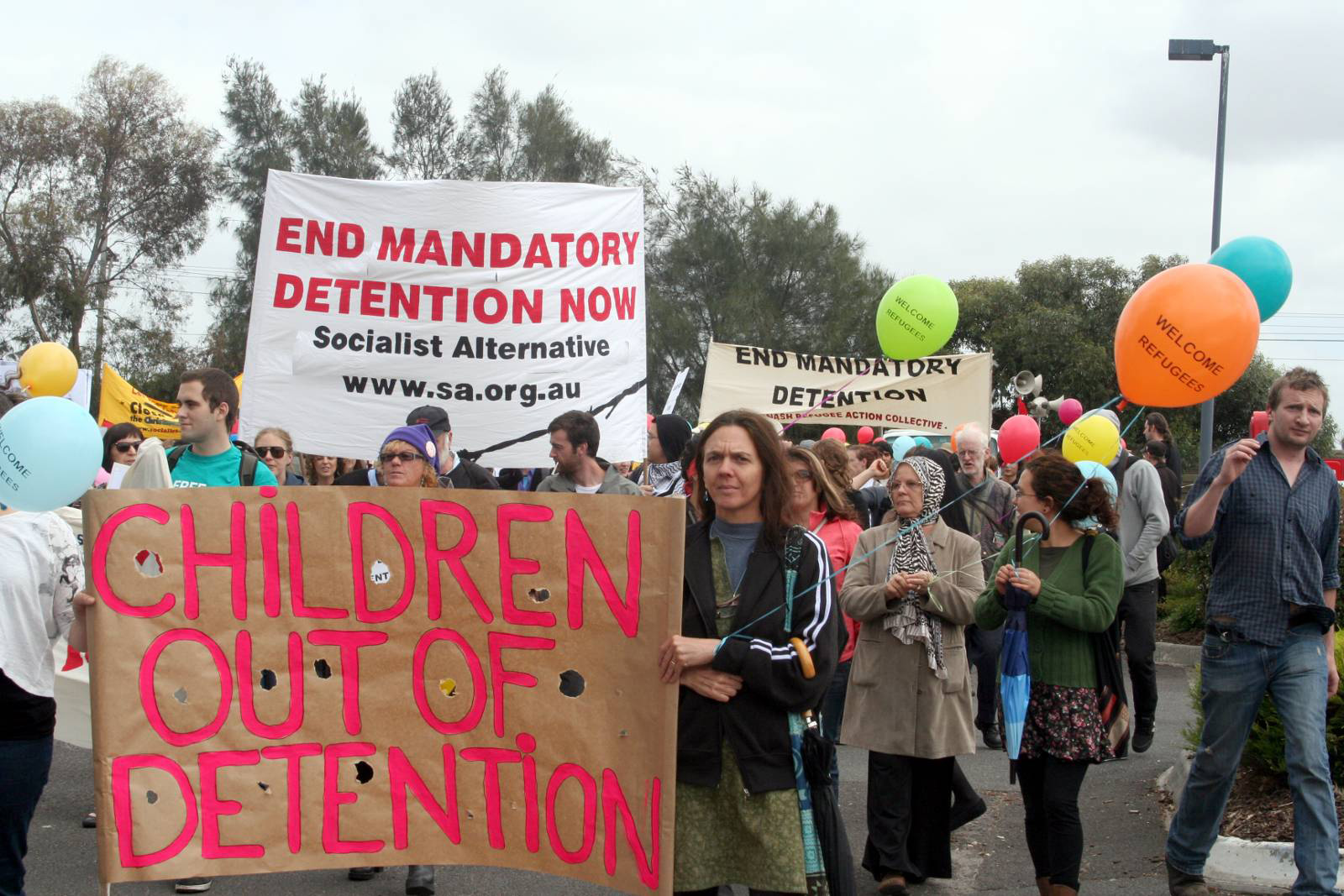As the COVID-19 pandemic threw American metropolises into disarray, many looked to the nation’s urban hotspots for guidance on handling the unremitting distress. New York Governor Andrew Cuomo, for one, was propelled to national recognition for his response, while New York City Mayor Bill de Blasio faced intense criticism for his perceived failures—such as the overdue closing of public schools and continued personal use of his local YMCA, despite an impending closure of gyms.
As the public spotlight turns to New York City, an opportunity has emerged to look towards the city’s future and explore the ways it will serve as a model for progress in the post-pandemic world. With a professionally and ideologically diverse field of candidates, the 2021 mayoral election will determine whose vision will steer the framework for growth in the world’s economic and cultural hub.
New York and the Nation
Recently, the mayorship has seen increased exposure at the national level. De Blasio drew contempt for his “quixotic” and short-lived presidential ambitions, highlighted by a negative twenty-five-point net favorability among New Yorkers and a series of campaign stumbles. Former Mayor Michael Bloomberg’s aspirations for higher office gained considerably more attention; his late entry into the race attracted scrutiny regarding his character and record as hizzoner.
As mayor, Bloomberg garnered praise for quality-of-life policies, namely widespread smoking bans which increased average life expectancy by two years. New York became the largest city to adopt such a policy, which engendered similar restrictions in thousands of other municipalities. Furthermore, Bloomberg pioneered the introduction of calorie counts for restaurant menus, a development that undoubtedly spurred labeling regulations in other states and cities.
Despite the positive advancements in public health, Bloomberg was often derided for his “nanny state” mentality, including his unsuccessful push to regulate soda cup sizes, among the aforementioned policies. Nonetheless, a number of his more triumphant efforts served as models for legislation in American municipalities.
In light of George Floyd’s murder and subsequent nationwide protests, the tactics of major metropolitan police departments have been called into serious question. Bloomberg’s expansion of “stop-and-frisk,” for one, garnered attention for its constitutional complications, in turn challenging the legitimacy and effectiveness of such biased methods. As police reform moved into the national spotlight, new focus has been placed on abolishing such controversial strategies. In New York City, the New York Police Department (NYPD) disbanded its aggressive and controversial plainclothes anti-crime unit, which some referred to as the “last chapter” of stop-and-frisk.
In effect, New York City has time and again served as both a reflection and a microcosm of national issues and administrative challenges. The upcoming mayoral election mirrors evolving trends in ideology and leadership across the nation, and the major focuses of the race epitomize the country’s most relevant socioeconomic dilemmas.
Candidates Crowd In
The candidates positioning themselves for a mayoral run are attempting to leverage a range of perspectives and experiences to make their case to succeed the term-limited de Blasio. In one category are New York City insiders, including members of the city council, city executives, and other elected officials.
Arguably the most notable figure in this group is Corey Johnson, who has served as Speaker of the City Council since 2018. Johnson, a thirty-eight-year-old native of Massachusetts, rose to prominence for his frequent clashes with de Blasio over leadership, budgetary issues, and the city’s political and social future.
To prevent replicating national gridlock—where there is increasingly little dissent within party factions and lawmakers are often unwilling to break from party brass—many statesmen have called for legislative bodies to act as a greater check on executive power. Democrats essentially control the entirety of New York City’s political machine: only four of its fifty-nine elected positions are held by Republicans. Council members have criticized previous speakers for being “too closely aligned with the mayor” to be an effective counterweight on their agenda. And while the city leans overwhelmingly left, de Blasio has been frequently ridiculed for grandstanding and political theatrics, focusing less on policy initiatives.
Johnson’s position has allowed him to fill this perceived leadership void. Although a number of de Blasio’s successes have permeated the national conversation—such as the advent of universal pre-K, now featured on Joe Biden’s platform—his inaction and lethargy in recent years has prompted many to call for bolder reforms.
As the spread of COVID-19 accelerated in March, many accused de Blasio of downplaying the crisis, while Johnson repeatedly pleaded to close schools and cancel parades. Johnson also asserted that de Blasio was taking half-measures to alleviate virus transmission, with the mayor refusing to follow Johnson’s suggestions to close certain streets and open outdoor seating for restaurants to facilitate physical distancing. Greater coordination of resources could have prevented escalation of the pandemic and perhaps helped avoid President Trump’s use of the city as a scapegoat for his administration’s poor efforts to mitigate the virus.
Our country is in a war-time scenario but we're getting a Mar-a-Lago attitude from the federal government. We need testing, ventilators, surgical masks and we needed them WEEKS AGO, when @realDonaldTrump was still calling this pandemic a hoax.
— Mayor Bill de Blasio (@NYCMayor) March 14, 2020
Johnson has also shepherded proposals to reform the NYPD in the wake of recent Black Lives Matter protests. For instance, his call to slash nearly a billion dollars of the NYPD’s six billion dollar budget quickly garnered support from many council members, though it was hastily rejected by de Blasio as excessive. The mayor eventually relented and worked with the city council to nominally reallocate a billion dollars of police funds to youth programs and social services. However, many criticized the move as an accounting trick that moved police funds to other city agencies (like the Department of Education) for the same policing purposes. By and large, the budget cuts were far from the commitment other cities made to reconstruct their police departments.
Unlike de Blasio, who accepted presidential campaign contributions from a plethora of special interest groups, Johnson has pledged to lead a “people-powered” campaign for mayor—mirroring a national trend of aspiring candidates limiting funding from so-called “big money.”
In contrast to Johnson’s relative youth is Scott Stringer, the city’s comptroller. Stringer has been a fixture in local politics for more than thirty years, serving as the Borough President of Manhattan and a member of the state assembly before becoming the city’s chief fiscal officer. While Stringer decided against running for higher office before, he is making tangible moves to fundraise and build support prior to 2021. In a sense, Stringer’s arc and election prospects may parallel the turbulent development of Joe Biden’s career on the national level. A lifelong politician, Stringer is launching a campaign for the city’s highest office at the apex of his political lifespan.
Stringer’s platform will emphasize transportation and housing reform, as major cities look to mitigate the effects of increasingly steep costs of living. Stringer wants to “break car culture” and develop alternative methods of public travel, including expanding cycling infrastructure, busways, and subways. In his view, these issues are intrinsically linked to the high price of housing: “It’s all very connected—how we get kids to school in the morning, how we get them back to their families, how we build the next generation of housing to keep people here, and also for new people to come here.” Jeffrey Tumlin, who runs San Francisco’s transportation department, similarly highlighted transportation as a method of creating greater equality and reducing public health concerns.
While Stringer has held progressive views—even calling for a $1.1 billion reduction to the NYPD budget days before Johnson did—his candidacy raises a pertinent, unresolved question for modern American politics. Do voters prefer adept, steady, and uninteresting public servants, or leaders with a greater diversity of experiences?
Progressive Power on the Rise
The most recent national Democratic primary signaled that while candidates with unique backgrounds and perspectives can gain significant support, forces ultimately coalesced around Biden, who represents an overrepresented demographic.
On the local level, however, trends are continually evolving. In New York City especially, ranked the eighth most liberal American city of at least 250,000 people, recent elections may hint at a willingness to select candidates with less traditional backgrounds and ideological leanings. Notably, Alexandria Ocasio-Cortez defeated incumbent Joe Crowley in the 2018 NY-14 Democratic primary. Ocasio-Cortez is a self-described democratic socialist who boasts favorable approval ratings in her district in 2019 polling. And while the freshman representative has declined a mayoral run, constituents—even those who don’t identify as democratic socialists—overwhelmingly support her reforms, including Medicare for All and the Green New Deal.
This disposition to support progressive ideas has been evident in other contests. The 2019 citywide election for public advocate (effectively the city’s watchdog and the position de Blasio held before becoming mayor) was a contest between seventeen candidates with a vast spectrum of visions. The victor, former City Council Member Jumaane Williams, is also a democratic socialist who campaigned on abolishing Immigration and Customs Enforcement and universal rent control. While he has committed to seeking re-election, some groups have pondered drafting Williams for a mayoral run—Black Lives Matter protestors were heard leading a “Mayor Williams” chant on the Brooklyn Bridge in early June.
The Working Families Party, a minor political party that often backs progressive candidates, noted that they are looking for potential hizzoners like Williams who can lead “on the issues that matter most to [the WFP]—invest in our communities, divesting from the police, etc.”
One familiar face who might fit that bill is Andrew Yang. The former 2020 presidential candidate gained traction for his unique platform, including once-niche policy initiatives like universal basic income. Though Yang—born in New York and an avid Mets fan—has not officially declared his candidacy, he has openly speculated about the possibility of seeking the mayorship. In fact, Michael Bloomberg’s advisors reached out in March to offer counsel for a potential run.
In recent months, Yang has also taken steps to boost his public profile and lay the groundwork for a campaign. In the aftermath of his bid for the Democratic presidential nomination, Yang created Humanity Forward, a New York-based nonprofit organization designed to promote “a ‘humanity first’ approach to capitalism.” The organization launched an initiative to provide pandemic relief through $1,000 payments to one thousand residents of the Bronx, mirroring Yang’s universal basic income proposal. In May, Yang elevated his profile further by successfully suing the New York State Board of Elections over the cancelled June 23 state presidential primary.
Yang’s guiding philosophy could prove to be an ideal match for post-pandemic New York City. As Matt Stevens wrote in the New York Times, Yang could have “the ideas and creativity to meet the moment” and be “just what voters are looking for as New York tries to rebuild.” State Senator John Liu praised Yang and encouraged him to leverage his national following for a mayoral run, even comparing him to Shirley Chisholm—the “unbought and unbossed” Black New York congresswoman who launched a longshot run for president in 1972. Much like Chisholm “fought so many historic political battles before others recognized the necessity of those struggles”—including a push for basic minimum income—Yang could use his executive powers as mayor to implement a range of innovative programs.
Furthermore, as the world seeks new models for development, New York City could serve as the testing ground for progressive policies. Yang’s human-centered capitalism could be especially appealing in a metropolis shaken by record unemployment and economic hardship.
Out with the Old?
While the slate of local politicians and progressive leaders may already seem bloated, there is a peripheral group of candidates that could be described as managerial types.
Among these is Shaun Donovan, who worked in the Bloomberg administration and served as Secretary of Housing and Urban Development and Director of the Office of Management and Budget under President Obama. Donovan, another White man, is attempting to leverage his technocratic ingenuity and unabashed wonkishness to make a case for his candidacy. He boasts a number of tangible policy accomplishments, including reducing homlessness among veterans by half in New York City and working to organize relief efforts after Hurricane Sandy.
However, Donovan suffers from low name recognition and a lack of experience running for public office, while also adding little diversity to an already racially homogeneous field. While his knack for executive leadership would likely impart the tools to perform the job effectively, it is unlikely he will topple the seasoned politicians ahead of him in the race.
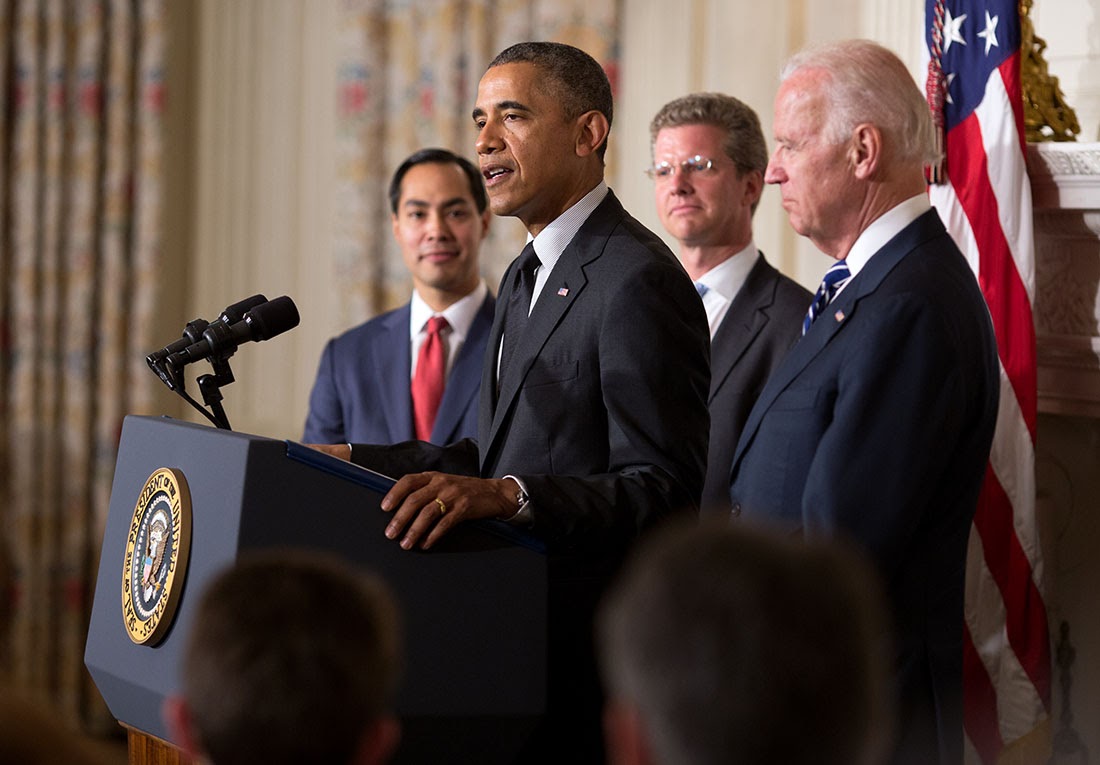
Nonetheless, like Biden, Donovan has promoted his national administrative experience and ties to Obama in order to boost his profile. “Look at what happened in the Obama administration under my leadership,” Donovan said. “I think the current occupant of the White House has made not just New Yorkers but people across the world miss Barack Obama more than they ever have.”
As local and national politics become increasingly intertwined, this may be an opportunity for New York to serve as an ideological counterpoint to the right-wing federal executive branch. To this end, Donovan is crafting a campaign narrative that pits New York against national leadership. Donovan has even sought guidance from nationally recognized figures like Rev. Al Sharpton to offer credibility to his campaign. In effect, even the New York City mayoral election could become a referendum on Trump and Obama—questioning whether left-leaning factions of the country are ready to move toward more progressive values, or if the “old ways” are upheld.
While New York City politics are by no means a perfect barometer of American political leanings, they can be a prescient reflection of favorable policy and practices. An examination of the city’s upcoming mayoral candidates reveals varying approaches to twenty-first-century lawmaking and leadership. Some candidates seek to promulgate a fresh worldview, others demonstrate their capacity to lead firsthand, while some leverage their prosaic executive experience to make the case that they can guide the city through unprecedented times.
Furthermore, because the concerns of the city are inherently intertwined with the broader national debate, the mayorship is an opportunity to bring progressive solutions to the forefront of the conversation. The undetermined question, then, as it was on the national stage, is whether voters are disillusioned with establishment figures, and if the moment is right to opt for a younger candidate with innovative ideas.
While the 2020 presidential election may not speak clearly to the national electorate’s preferences, New York City could position progressive ideas as the model for success, facilitating fundamental changes to politics as the world enters a new era.

